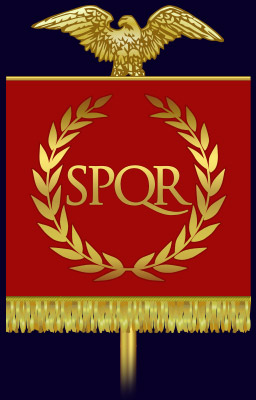Empire State of Mind
Where Greece had been a civilisation of the mind, Rome was a civilisation of power. Rome took the Thought of the Greeks and aligned it with Will, resulting in the formation and expansion of the Roman Empire.

The emphasis on Thought and Will is manifested in a highly centralised society, towns and cities taking precedent over a more rural existence.
At this time, the quality of Feeling is carried by the pagan religions, which maintain a deep instinctive connection to nature and the land. The term pagan comes from the Latin paganus or countrydweller. Among the pagan religions are the Gnostics, who promote gnosis or direct experiential spiritual knowledge: awareness through direct perception rather than through faith or intellectual reasoning.
One big difference between orthodox Christianity and Gnosticism is that the former proposes that revelation can only be found through an external agency (Jesus Christ) whereas the latter teaches of revelation through an inner experience (the Christ within). The former creates a hierarchy of power called the priesthood; the latter places the keys to salvation – and hence personal power – with the individual.
Some modern scholars propose that Christianity in its original form consisted of two levels – an outer, exoteric level in which the stories were taught as literal truths, and an inner, esoteric level in which the stories were revealed as symbolic allegories. The Roman Empire aligns with the exoteric level to create the Roman Church which, without the inner mystical core, becomes a tool for control rather than liberation.
The Church Fathers go to great lengths to weed out what they see as false doctrines and in the early centuries, a number of meetings are held to decide just what is allowed in – and left out of – the evolving religion.
AD393 serves as an interesting marker as far as the upper and lower strands of history are concerned.
With regards the upper strand and the outer Church, it is the year in which the Synod of Hippo takes place, the first time a council of bishops list and approve a canon of sacred scripture, deciding what to include in the collection of writings that will come to be known as the Bible.
As for the lower strand, AD393 is the year in which the Oracle of Delphi is abolished.
Tell to the king that the carven hall is fallen in decay;
Apollo has no chapel left, no prophesying bay,
No talking spring. The stream is dry that had so much to say.
The sacred waters of Delphi have gone underground; the pythonesses are no more. A new solar force is on the rise.

 TOP
TOP NEXT
NEXT